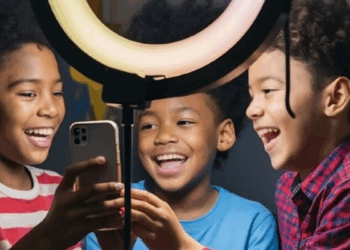A new Common Sense Media report reveals that 72% of teens have used AI companions, and 1 in 3 say they have actual relationships or friendships with them. While some use these bots for entertainment, others are turning to them out of loneliness, boredom, or a need for emotional support.

“This is happening at a time when kids and teens have never felt more alone,” Robbie Torney, senior director of AI Programs for Common Sense Media tells Parents.com in a recent interview. “But these machines don’t have your child’s best interests at heart.”
If you are not sure what the difference is between AI companions and basic chatbots. Here is how they differ:
Chatbots were created for helping to complete tasks such as answering question or helping with service. Whereas AI companions are being designed to build relationships, offer emotional support, and engage in continuous conversations.
“These aren’t Siri or Alexa giving you the weather,” explains cybersecurity expert Eric O’Neill. “They’re bots designed to mimic human connection. They hold deep conversations, remember your preferences, and sometimes even form ‘relationships.’ For some teens, it becomes a lifeline.”

Experts say teens are drawn to AI companions for a mix of emotional, social, and developmental reasons including curiosity and entertainment, loneliness, validation, and non-judgmental spaces.
Psychiatrist Dr. James Sherer explains to the outlet that, “These tools can ‘get to know’ an adolescent quickly. From there, it’s easy for them to feel like they’re talking to a close friend they’ve known for a long time.”
While AI companions may feel supportive, they come with serious risks such as: false sense of friendships, missed opportunities for parents to pick up on clues of depression or suicidal ideations, harmful content, distorted development, and dangerous advice from AI companions.
“While they seem emotionally available, they’re driven by algorithms, not empathy,” warns O’Neill. “Long-term, they can blur the line between real connection and artificial feedback, which messes with emotional development.”

Of course, the experts suggest that parents and teens need to have an open conversation about using AI companions.
According to Torney, parents don’t need to be tech experts to start the discussion. Instead Torney offers these conversation starters:
- Stay curious, not judgmental. Ask what platforms your teen uses and how they feel about them.
- Explain the difference. Let them know AI companions are programmed to always validate, not to offer real, healthy feedback.
- Set boundaries. Work together on a family media agreement that includes AI use.
- Highlight limitations. Remind them that AI isn’t a substitute for therapy, real friendships, or professional help.
“If my children were interested in these companions, I’d gently ban them; I’d also want to know why,” says O’Neill. “Most of all, be the better companion. If they’re turning to AI, ask why they don’t feel comfortable coming to you.”







